‘There is never an end game’: Hong Kong after a year of protest
Protesters hold on to hope as China prepares to impose a national security law that could utterly change the territory.
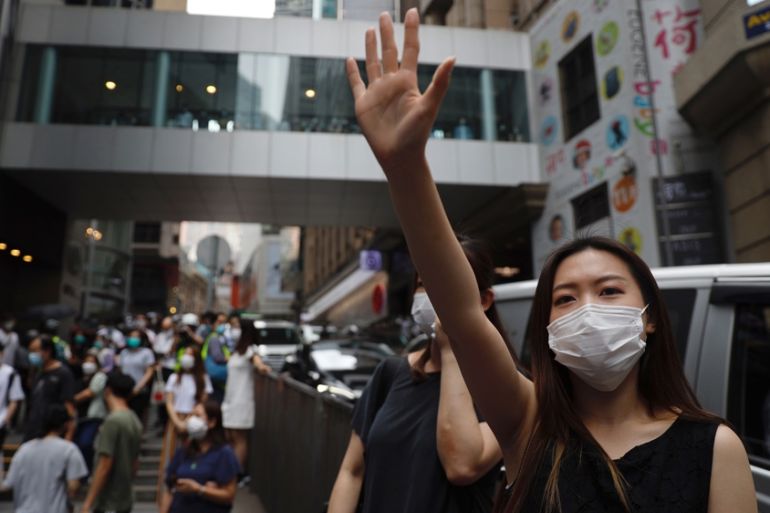
When 2 million people marched through the streets of Hong Kong a year ago, the territory’s leader Carrie Lam had just promised to suspend the controversial extradition bill that triggered weeks of peaceful protest in the semi-autonomous Chinese city.
When the march went ahead anyway, it was a sign that the discontent was about far more than a bill that would have allowed people to be sent to mainland China for trial.
Keep reading
list of 4 itemsThe Take: Where are Hong Kong’s protesters now?
Hong Kong’s new security law comes into force amid human rights concerns
Hong Kong passes tough new national security law
“Money is not everything,” Lee Cheuk Yan, the general secretary of the Hong Kong Confederation and Trade Unions and chairman of the Hong Kong Alliance in Support of Patriotic Democratic Movement of China, told the Senate Banking Committee in the US on June 4.
“It is more important for Hong Kong to preserve our freedom and way of life, or else Hong Kong is no longer Hong Kong. We are left with the body, but not the spirit.”
Until September last year, Bonnie Leung was the vice convener and international spokeswoman for the Civil Human Rights Front, the umbrella group that mobilised the initial opposition to the bill.
She had no expectation of success when the movement took to the streets, but she realised things would be different on June 12, the day the extradition bill was due to have its second reading in the Legislative Council (Legco).
The CHRF’s plan was to peacefully encircle the Legco building, but as Leung stood on stage, she saw people in the crowd distributing face masks and helmets.
“They just did it,” she said of the protesters. “They decided that they would risk their own lives, safety, years of imprisonment to stop the pro-Beijing legislators from getting into the building to debate the bill.”
As the police resorted to tear gas to break up the crowd, the second reading was abandoned. Three days later, Lam announced the bill had been suspended.
“These people created hope,” Leung said. “It convinced us that we are one camp, but using different strategies.”
Promises
Hong Kong, which had enjoyed some civic freedoms but never full democracy in more than 150 years as a British colony, was returned to China in 1997.
The British and Chinese governments thrashed out the terms of the return in the 1980s. For China, beginning to embark on an era of economic reform, Hong Kong was not only a political prize, but an economic one. The territory was a vibrant manufacturing centre, and by the time of the handover was contributing the equivalent of 16 percent of the mainland’s GDP.
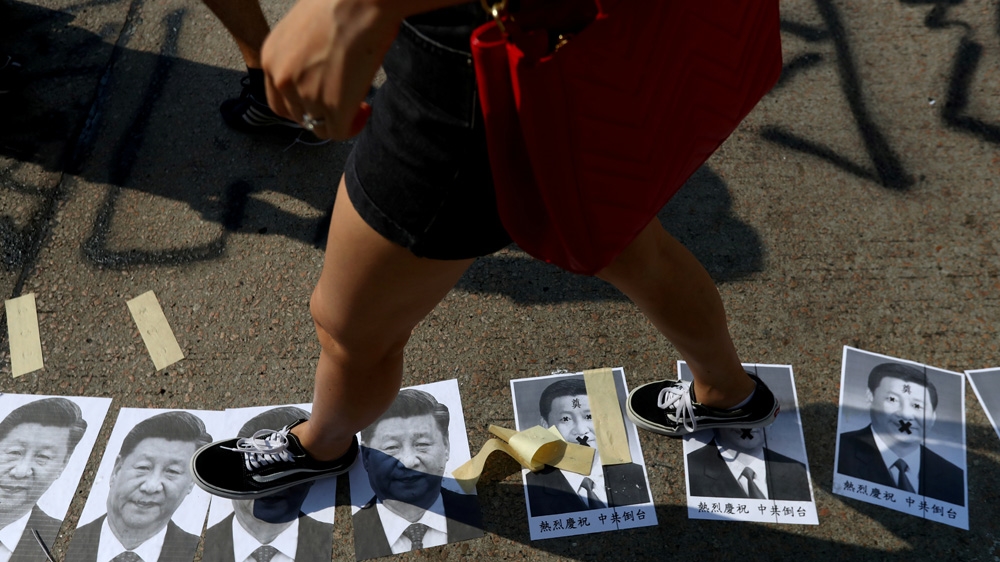
The 1984 Sino-British Joint Declaration, an international treaty, laid out the terms, with the Basic Law as the territory’s mini-constitution.
Under the agreement, Hong Kong would become part of China, but retain a high degree of autonomy under the so-called “one country, two systems” framework until 2047, while the Basic Law held out the “ultimate aim” of universal suffrage in electing Hong Kong’s leader and legislature. China reserved the right to “interpret” the law.
Life continued much as before.
Hong Kong continued to hold its annual vigil for the lives lost in the military crackdown on Tiananmen Square in 1989. Its media continued to report freely. An independent legal system provided comfort to the city’s residents, as well as domestic and international businesses.
But in recent years, and particularly since President Xi Jinping came to power in 2013, Beijing has taken an increasingly interventionist approach.
In 2014, pro-democracy protesters camped out at the central business district for nearly three months – the so-called Umbrella Protests – after China said only pre-approved candidates would be allowed to stand for the post of chief executive.
The next year, a group of booksellers, known for salacious publications on China’s leaders, disappeared – only to re-emerge on the mainland making “confessions” on state television.
In 2016, there was acrimony over oath-taking in the Legislative Council – China exercised its powers to “interpret” the Basic Law and six elected pro-democracy politicians were disqualified. Last month, a controversial bill criminalising “disrespect” for China’s national anthem was passed.
Hardened by the experience of 2014, protesters changed their approach.
They became a collective – nimble, responsive and organised across social media, adopting the motto “Be water”. People could choose their own way to participate – from a flash mob during lunchtime, to consumer boycotts, to messages on “Lennon walls” or taking to the front line.
Despite forceful policing, and China’s move last month to impose a National Security Law on Hong Kong, the movement has survived.
“In the immediate term it’s not looking good,” said Lokman Tsui, an assistant professor at the Chinese University of Hong Kong, who is an expert in digital communication. “But the thing about hope is that hope is not just waiting for good news to fall out of the sky. It’s something you have to work for, and in the past year, Hong Kong people have been working hard to keep having hope, to keep protesting.”
Engaging or appeasing?
When China joined the World Trade Organization in December 2001, many commentators thought its inclusion into the global economy would eventually make the country more like a Western democracy.
Rowena He, who left the mainland after the 1989 crackdown and now teaches history at the Chinese University in Hong Kong, says decision-makers failed to understand the nature of the government in Beijing.
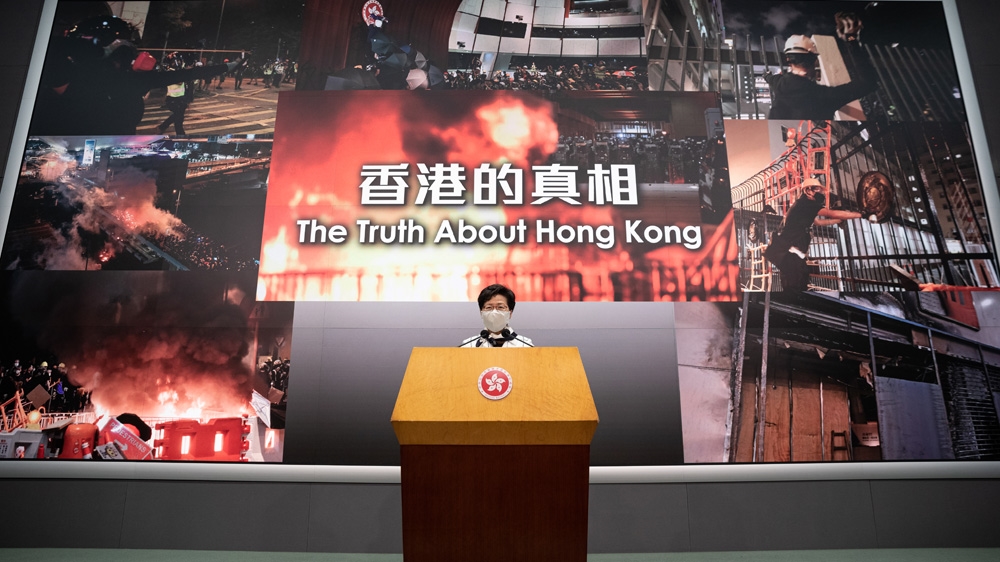
“Facing the China model of governance, a hybrid of authoritarian control and state-led capitalism, the Western world was mesmerised by the wealth and material accomplishments of a rising China, but they were naive about the nature of the CCP,” she said.
“For a long time, they adopted an appeasing policy of not talking about human rights but focusing on business with the illusion that the country would eventually become democratised.”
China is now the world’s second-largest economy, but its political system has hardened. Xi has expanded surveillance, clamped down on dissent and made himself China’s most powerful leader since Mao Zedong.
“The CCP’s underlying principle in handling crisis has always been to maintain power at any cost,” He said.
Nevertheless, the protests of the past year have been left largely to Hong Kong to resolve. Lam’s administration has shown little willingness to compromise, instead relying on the police. Some 9,000 people have been arrested over the past year, the youngest only 11 years old, according to the South China Morning Post.
“The government is doubling down, doubling down and doubling down,” said Tsui. “It’s not listening to the people and is using the police as its only response.”
Last September, Samuel Chu, whose father was one of the leaders of the Umbrella Movement, founded the Washington-based Hong Kong Democracy Council with the goal of making Hong Kong a “major and essential” component of US-China policy. Along with high-profile meetings for Hong Kong campaigners in the US, it was instrumental in building support for two bills backing democracy in Hong Kong that were passed last November.
But, behind the scenes, China was also planning its next move.
In April, 15 of the city’s most-prominent and respected pro-democracy campaigners, including veteran politician Martin Lee and media tycoon Jimmy Lai, were arrested for taking part in the protests.
Then, on the eve of the annual session of the National People’s Congress, the country’s parliament, Beijing announced plans for the National Security Bill. It would mean people in Hong Kong could be jailed for activities labelled as treason, secession and subversion by foreign forces – accusations that have been levelled against critics on the mainland.
In Hong Kong, protesters returned to the streets after a coronavirus ban on gatherings of more than eight people had kept many at home.
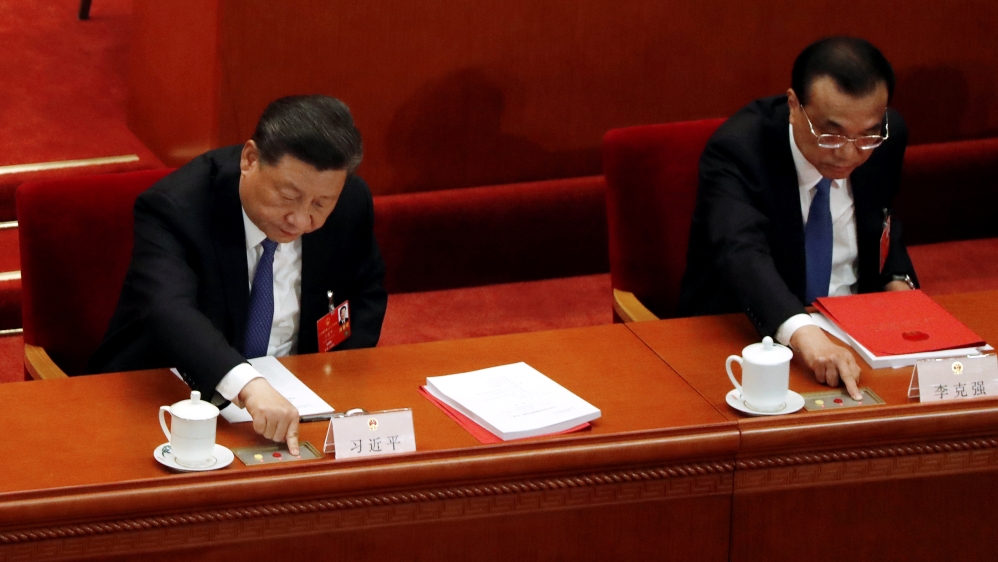
Hong Kong’s government, which has labelled the protesters “rioters”, has backed the legislation, insisting ordinary people will not be affected.
“The legislation only aims to prevent, curb and sanction an extremely small minority of criminals who threaten national security,” Secretary for Justice Teresa Cheng wrote in a blog post on Sunday.
‘Constrainment’
Nevertheless, the law has spurred concern among an international community already on edge over China’s handling of the coronavirus, which first emerged in the central city of Wuhan last year.
US President Donald Trump – keen to deflect from his own calamitous handling of the outbreak – condemned the move. The US later said Hong Kong no longer had the autonomy that allowed it to enjoy special trading status.
The UK said it would offer as many as three million Hong Kong people enhanced visa rights and the possibility of citizenship.
Earlier this month, parliamentarians from 11 countries including Australia, Canada, Japan, the UK and the US formed the Inter-Parliamentary Alliance on China to reconsider the way in which democracies worked with China.
What appears to be emerging, wrote Andreas Fulda, assistant professor in the School of Politics and International Relations at Britain’s University of Nottingham, in The Conversation, is “constrainment”, a concept of incentives, deterrence and punishment first outlined by Gerald Segal in the mid-1990s.
Targeted sanctions are also a possibility.
“It’s not a magical ‘let the wall come down,'” Chu said, acknowledging the fickle nature of the Trump administration. “These are the grinding day-to-day things that will minimise the damage to Hong Kongers while maximising the damage to the CCP and its supporters. People around the world understand what bullying by the CCP feels like and that lying by the CCP makes a difference to our everyday lives.”
For Hong Kong’s protesters, the National Security Law has given them renewed determination. Overt calls for independence, while far from mainstream, have become more visible.
Tsui says the strategy is to “make it difficult for Beijing and continually raise the price of playing hardball”.
The coronavirus meant this year’s Tiananmen vigil was banned, but many people made their way to Victoria Park anyway.
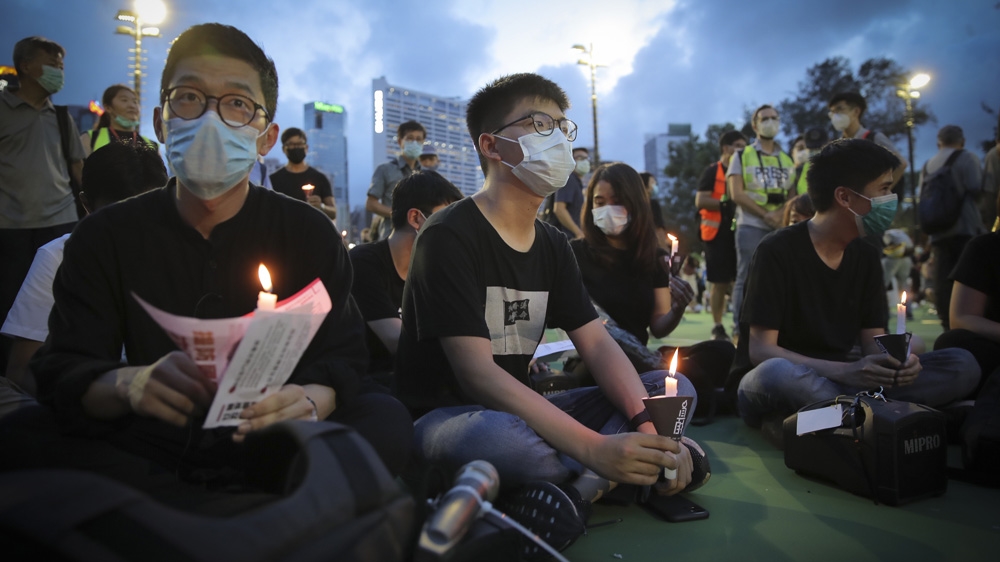
The next Legco Elections are scheduled for September. In last year’s district elections, pro-democracy candidates swept the board. The Legco poll is more controlled, but the democracy camp was expecting to do well. Some worry the National Security Law, which is expected to be imposed in the next couple of months. could make it difficult to campaign.
For He, whose students often ask her for advice, it is necessary to retain some optimism.
“There is never an ‘end game’,” she said. “No matter how bad it might appear now, it is just the beginning of an end. It is easy to be a hero for a few moments, but it is harder to be persistent, to carry on day-to-day. We should not lose hope. We might lose many battles, but we will win the war.”